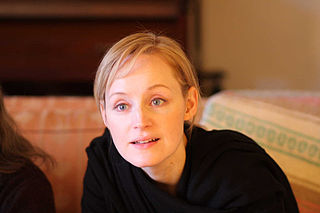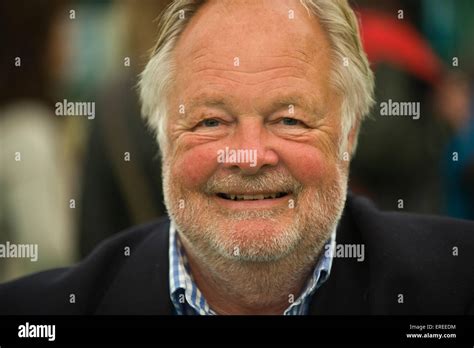A Quote by Wangechi Mutu
We became Homo sapiens not that long ago, from the scientific perspective, and we've retained a lot of our beast nature. We've done all these amazing things in terms of our knowledge base and technology, and now we're flying around and using the Internet. But we're still very animalistic.
Related Quotes
We became Homo sapiens not that long ago, from the scientific perspective, and we've retained a lot of our beast nature. We've done all these amazing things in terms of our knowledge base and technology, and now we're flying around and using the internet. But we're still very animalistic. So, I think about hierarchies. I think about evolution. I think about how we stack up, how we sit on top of each other. How we pray that we know what we're up to.
I tend to believe that film can try to save what still can be saved, in terms of our histories, our memories. Because a lot of things are disappearing very quickly, things are changing. We are living in very quick times, and we have a new generation who basically know nothing about events 30 years ago.
The humanity and the humility, which are very different than the biological species homo sapiens. Humanity versus homo sapiens - very different things. We are biological creatures, we are animals, no doubt, but when you talk about "humando," you're talking about that particular kind of animals who are aware of their impending extinction, who have the capacity to be sensitive to catastrophe and disaster and calamity and profound crisis.
We have come to look at our planet as a resource for our species, which is funny when you think that the planet has been around for about five billion years, and Homo sapiens for perhaps one hundred thousand. We have acquired an arrogance about ourselves that I find frightening. We have come to feel that we are so far apart from the rest of nature that we have but to command.
Technology is neutral and sterile. Now, technology is the nature of modern man; it is our environment and our horizon. Of course, every work of man is a negation of nature, but at the same time, it is a bridge between nature and us. Technology changes nature in a more radical and decisive manner: it throws it out.
Having access to mobile phones and being able to document your own life brings people together. Technology has a lot to do with how the world is developing at the moment because there are very raw and pure and primal emotions that people are communicating to each other over the Internet. It's like our new feathers, our new face paint. We're still trying to find love and friendship and cool music, but now it's over the Internet.
It may be a hundred-year battle to turn around our industries and finally get everyone living on sustainable energy with technology that can keep our lives comfortable. If that's the case, the first 20 years of the shift have actually done a lot to support that. But there's still a long way to go, and judging by the state of the environment, we don't have that kind of time.







































